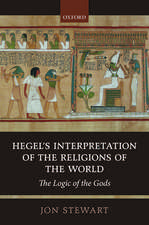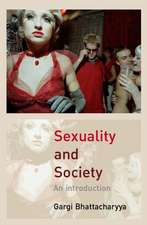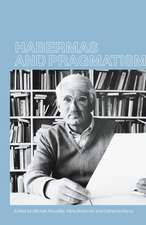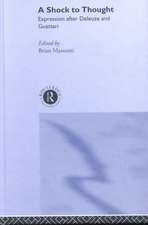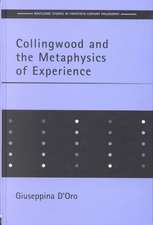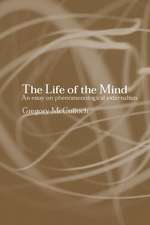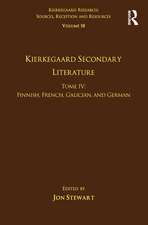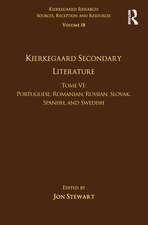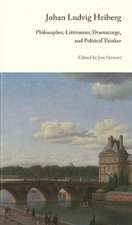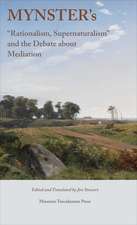Volume 8, Tome II: Kierkegaard's International Reception - Southern, Central and Eastern Europe: Kierkegaard Research: Sources, Reception and Resources
Editat de Jon Stewarten Limba Engleză Paperback – 28 oct 2016
| Toate formatele și edițiile | Preț | Express |
|---|---|---|
| Paperback (1) | 469.34 lei 6-8 săpt. | |
| Taylor & Francis – 28 oct 2016 | 469.34 lei 6-8 săpt. | |
| Hardback (1) | 1120.23 lei 6-8 săpt. | |
| Taylor & Francis – 28 feb 2009 | 1120.23 lei 6-8 săpt. |
Din seria Kierkegaard Research: Sources, Reception and Resources
-
 Preț: 311.41 lei
Preț: 311.41 lei -
 Preț: 386.77 lei
Preț: 386.77 lei - 18%
 Preț: 1056.28 lei
Preț: 1056.28 lei - 18%
 Preț: 1065.78 lei
Preț: 1065.78 lei - 26%
 Preț: 820.71 lei
Preț: 820.71 lei - 18%
 Preț: 1064.19 lei
Preț: 1064.19 lei - 18%
 Preț: 1064.19 lei
Preț: 1064.19 lei - 25%
 Preț: 826.15 lei
Preț: 826.15 lei - 18%
 Preț: 1071.27 lei
Preț: 1071.27 lei -
 Preț: 469.34 lei
Preț: 469.34 lei - 18%
 Preț: 1059.84 lei
Preț: 1059.84 lei - 15%
 Preț: 707.19 lei
Preț: 707.19 lei - 18%
 Preț: 1117.49 lei
Preț: 1117.49 lei - 18%
 Preț: 1054.71 lei
Preț: 1054.71 lei - 18%
 Preț: 1116.27 lei
Preț: 1116.27 lei -
 Preț: 381.28 lei
Preț: 381.28 lei - 26%
 Preț: 765.59 lei
Preț: 765.59 lei - 25%
 Preț: 825.63 lei
Preț: 825.63 lei - 26%
 Preț: 821.13 lei
Preț: 821.13 lei -
 Preț: 469.34 lei
Preț: 469.34 lei - 18%
 Preț: 1061.81 lei
Preț: 1061.81 lei - 18%
 Preț: 1064.98 lei
Preț: 1064.98 lei - 18%
 Preț: 1061.81 lei
Preț: 1061.81 lei - 18%
 Preț: 1059.45 lei
Preț: 1059.45 lei - 18%
 Preț: 1059.45 lei
Preț: 1059.45 lei - 18%
 Preț: 1060.25 lei
Preț: 1060.25 lei -
 Preț: 489.26 lei
Preț: 489.26 lei - 25%
 Preț: 768.82 lei
Preț: 768.82 lei - 18%
 Preț: 1120.23 lei
Preț: 1120.23 lei - 18%
 Preț: 1113.12 lei
Preț: 1113.12 lei - 18%
 Preț: 1067.35 lei
Preț: 1067.35 lei - 18%
 Preț: 1057.09 lei
Preț: 1057.09 lei - 18%
 Preț: 1058.65 lei
Preț: 1058.65 lei - 25%
 Preț: 768.82 lei
Preț: 768.82 lei - 18%
 Preț: 1064.98 lei
Preț: 1064.98 lei - 25%
 Preț: 769.69 lei
Preț: 769.69 lei - 18%
 Preț: 1061.06 lei
Preț: 1061.06 lei - 26%
 Preț: 820.32 lei
Preț: 820.32 lei - 25%
 Preț: 823.17 lei
Preț: 823.17 lei - 26%
 Preț: 821.94 lei
Preț: 821.94 lei - 26%
 Preț: 821.53 lei
Preț: 821.53 lei - 18%
 Preț: 1064.19 lei
Preț: 1064.19 lei - 18%
 Preț: 1057.26 lei
Preț: 1057.26 lei - 26%
 Preț: 850.73 lei
Preț: 850.73 lei - 18%
 Preț: 1054.71 lei
Preț: 1054.71 lei - 25%
 Preț: 854.26 lei
Preț: 854.26 lei
Preț: 469.34 lei
Nou
Puncte Express: 704
Preț estimativ în valută:
89.83€ • 92.58$ • 75.84£
89.83€ • 92.58$ • 75.84£
Carte tipărită la comandă
Livrare economică 03-17 martie
Preluare comenzi: 021 569.72.76
Specificații
ISBN-13: 9781138273276
ISBN-10: 1138273279
Pagini: 354
Dimensiuni: 156 x 234 mm
Greutate: 0.45 kg
Ediția:1
Editura: Taylor & Francis
Colecția Routledge
Seria Kierkegaard Research: Sources, Reception and Resources
Locul publicării:Oxford, United Kingdom
ISBN-10: 1138273279
Pagini: 354
Dimensiuni: 156 x 234 mm
Greutate: 0.45 kg
Ediția:1
Editura: Taylor & Francis
Colecția Routledge
Seria Kierkegaard Research: Sources, Reception and Resources
Locul publicării:Oxford, United Kingdom
Cuprins
Contents: Part I Southern Europe: Portugal: Discontinuity and repetition, Elisabete M. de Sousa; Spain: The old and new Kierkegaard reception in Spain, Dolors Perarnau Vidal and Óscar Parcero Oubiña; Italy: From a literary curiosity to a philosophical comprehension, Ingrid Basso. Part II Central Europe: Hungary: The Hungarian patient, András Nagy; Slovakia: A joint project of 2 generations, Roman Králik; The Czech Republic: Kierkegaard as a model for the irrationalist movements, Helena Brezinova; Poland: A short history of the reception of Kierkegaard's thought, Antoni Szwed. Part III Eastern Europe: Russia: Kierkegaard's reception through Tsarism, Communism and liberation, Darya Loungina; Bulgaria: The long way from indirect acquaintance to original translation, Desislava Töpfer-Stoyanova; Romania: A survey of Kierkegaard's reception, translation and research, Nicolae Irina; Macedonia: The sunny side of Kierkegaard, Ferid Muhic; Serbia and Montenegro: Kierkegaard as a post-metaphysical philosopher, Safet Bektovic; Indexes.
Notă biografică
Jon Stewart is an Associate Research Professor in the Søren Kierkegaard Research Centre at the University of Copenhagen, Denmark.
Descriere
Tome II covers the reception of Kierkegaard in Southern, Central and Eastern Europe. The first set of articles, under the rubric 'Southern Europe', covers Portugal, Spain and Italy. A number of common features were shared in these countries' reception of Kierkegaard, including a Catholic cultural context and a debt to the French reception. The next rubric covers the rather heterogeneous group of countries designated here as 'Central Europe': Hungary, the Czech Republic, Slovakia and Poland. These countries are loosely bound in a cultural sense by their former affiliation with the Habsburg Empire and in a religious sense by their shared Catholicism. Finally, the Orthodox countries of 'Eastern Europe' are represented with articles on Russia, Bulgaria, Serbia and Montenegro, Macedonia and Romania.

